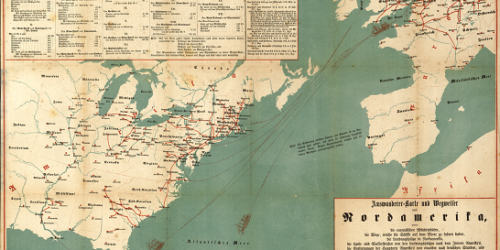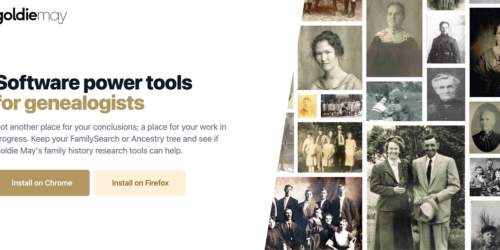Going through Town Records
 When you think of doing local family history, you probably think of records held at the county level. This is especially true for many of the Midwestern and Western states, where records are kept in county and state archives. However, in other parts of the United States, such as the New England area, local records were originally kept at the town level, especially during the early years of the United States.
When you think of doing local family history, you probably think of records held at the county level. This is especially true for many of the Midwestern and Western states, where records are kept in county and state archives. However, in other parts of the United States, such as the New England area, local records were originally kept at the town level, especially during the early years of the United States.
This is important to remember because of the vast difference in how the records were kept. County records tend to be divided into specific categories and year ranges to make them easier to search. For instance, you might find death records from 1837-1910 in one county. Town records, on the other hand, are not so organized. Back then, whenever crucial events happened, they were marked in the order they happened. There may be a marriage, a birth, another marriage, and so forth, until the recorders either ran out of paper or room in their books. This isn’t always the case though; some town records had some sort of organization with their records. But it is something to watch out for.
Here are a couple of examples of what a typical town record looks like:
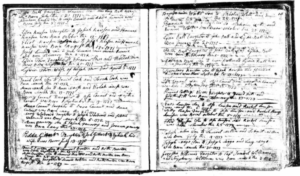
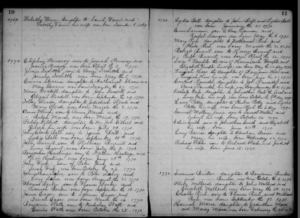
One thing to note here is that the these two examples cover the same events. The second example is a copy of the first one, probably one kept by a higher administration, either at the state level or, at a later time, the county level. In any case, it is best to seek out the record that was kept at or around the time period of the event, rather than copies made at a later date. This was especially helpful for me in my research when I was trying to resolve two conflicting birth dates for one of my ancestors.
Sometimes town records can include council minutes and local surveys done to better evaluate taxes. Here’s an example from New Hampshire:
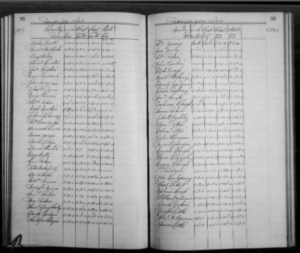
While they may not have much genealogical value, council minutes and surveys can provide some insights into what life was like for the people in that area. In my case, these records helped me to know more about what items my ancestor owned and how much he paid in taxes, giving a better perspective on what my ancestor’s life was like.
Town records can be found through the FamilySearch Catalog, through Ancestry, or in your target county or state archives. Like most records, they do take time to go through in order to find the information that you are seeking, especially if they are not indexed and searchable. But the search is worth it once you find your ancestor in them.


